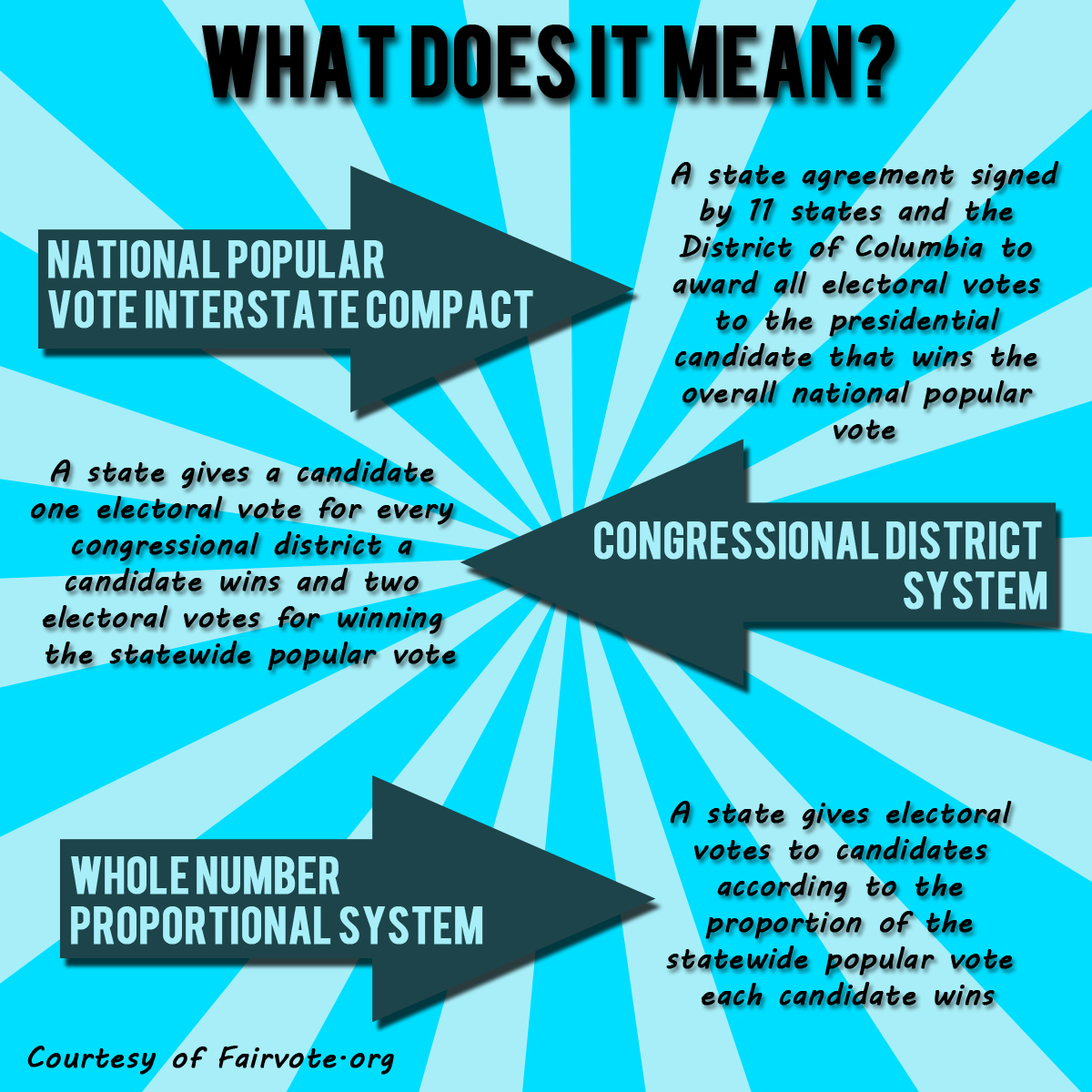By: Alyson Peabody, News Editor
Maine Senate President Troy Jackson, a Democrat from Allagash, is sponsoring a bill for Maine to join the National Popular Vote Interstate Compact.
In the article, “Debate swirls around bill to base Maine’s choice for president on popular vote,” published on Mar. 2 in the Portland Press Herald, Kevin Miller, writer said that Senator Jackson claims switching to the popular vote would lead to vote equity, increase in voter participation, and would give incentive for presidential candidates to campaign in small, rural states. Opponents of joining the compact argue that Maine would have less influence in presidential elections.
According to Miller, there are two bills pending in the Legislature pushing for Maine to join a multistate compact consisting of eleven states and the District of Columbia, called the National Popular Vote Interstate Compact. Maine would join Maryland, New Jersey, Illinois, Hawaii, Washington, Massachusetts, Vermont, California, Rhode Island, New York and Connecticut in agreement to award state electoral votes to the candidate that wins the national popular vote. Colorado and New Mexico may join the compact in the near future.
“The Electoral College was originally in place as a way of choosing the president without employing a broad franchise,” said Professor Ronald Schmidt of the Political Science Department at USM when explaining the electoral college and its function. “The idea was that the people were the source of legitimation the US government, but only in the House of Representatives would they play a very direct role. Otherwise, state legislators would elect US senators and they would also elect people to serve as electors that would meet separately to choose the president.”
Former Democratic Maine Senator John Martin, author of the state’s congressional district plan in 1968, endorsed the National Popular Vote plan during his time in office. Martin recalled in his 2008 interview with Bangor Daily News that the U.S. House of Representatives passed a constitutional amendment to remove the Electoral College and for the popular vote to elect the president. “Our faith in government,” Martin said, “and by default ourselves, was being sorely tested. This tumultuous era of the Vietnam War and loss of Robert F. Kennedy sparked a movement to reform the Electoral College.” The amendment received strong support based on national polls, according to Martin. Strom Thurmond led other Southern segregationists to the Senate to filibuster the amendment. “Sadly, they succeeded,” Martin said.
The Electoral College is made up of 538 electors. One person is selected to become an elector based on every member of the House of Representative plus two electors to represent the two senators for each state. A candidate running for presidency needs a majority of 270 electoral votes to become elected. The National Archives and Records Administration database states that a person can not be appointed as an elector if they are a “Senator or Representative, or Person holding an Office of Trust or Profit under the United States.” These rules prohibit the college from congregating in an effort to prevent electors from “conspiring against the people,” Schmidt said.
Maine and Nebraska use an alternative method of distributing their electoral votes called the Congressional District Method. Maine has used this method since 1972 and Nebraska since 1996. Currently, these two states are the only two in the union that differ from the traditional winner-take-all method of the electoral vote distribution process, according to Fairvote.org. The Congressional District Method gives one electoral vote to each congressional district. The number of electoral votes are allocated based on the number of House seats and the two Senate seats. Maine has four electoral votes. The winner in each district gains one electoral vote. The remaining two votes are given to the winner of the statewide popular vote.
Schmidt remarked that in some ways the Electoral College is a holdover from the earlier form of government. “For us, democracy is ninety percent about a fair franchise: one person and one vote. But at the beginning of the republic, it wasn’t so much,” Schmidt said. “The electoral college was a result of that time. The biggest effects now of the Electoral College is that it does provide an incentive for officials to go to low population states. If all we had was a direct national vote, then you could get four times as many votes by going to Madison Square Garden than you could get by going to Maine.”
According to Schmidt, the Electoral College and the Senate overrepresent rural states with smaller populations. Los Angeles County has more voters than several states do and yet Wyoming, Montana, or Maine have an outsized role in picking the who the eventual president will be because of this system.
“Maine’s four electoral votes are very important,” Schmidt said. “We have a lot of very close presidential races and under those circumstances, our electoral votes actually can matter. That provides some incentive for some candidates to still come here and campaign.”

